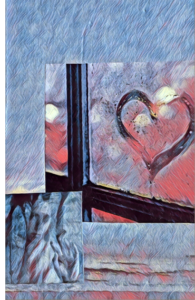Divorce is a Process
 You may be asking, how long does it take for me to get over a divorce? Can I deal with this stress? How do I get emotional support during a divorce without burning out my friends or family?
You may be asking, how long does it take for me to get over a divorce? Can I deal with this stress? How do I get emotional support during a divorce without burning out my friends or family?
First of all, the problem with a significant life change is that it isn’t over in a day, a week, or even a month or two. Divorce is an ongoing transition period in a person’s life. Not only do you have to figure out the logistics like parental agreements, allocating expenses, and divvying up your possessions, but you also must move, possibly sell, and buy a house, and change your routines.
Support for Intense Emotions
Furthermore, outside of the practical pieces, a more profound process is going on. There may be difficult emotions to process, such as shame, doubt, and regret about yourself. You may find you don’t recognize your spouse anymore and feel anger, jealousy, betrayal, our outright fury. Some of those feelings might be dark and overwhelming. Therapy can give you emotional support and a cathartic safe space where all emotions are allowed. This process is also a great way to sift through those feelings to determine where your feelings are coming from and what they are trying to tell you.
Some of the issues you may come across is that your friends want to be supportive, but they are also busy. Others feel guilty about reach out to friends or worry about bringing other people down. You know you need emotional support during a divorce, but you also feel alone in it. Some feel like no one actually understand the weight and intensity of what they are going through. You can’t just banish a dark night of the soul with platitudes, positive affirmations, and inspirational quotes. Times like this feel like you’re walking through fire. Pema Chodran goes into depth on these moments in her book, “When Things Fall Apart.”
Divorce – No Longer “We,” Becoming Me
Internally, the process may look like wondering what your values are, where you are in the big scheme of your life, whom you want to be in the future, and even how to live alone, possibly for the first time. In that case, you also will have the opportunity to get to know yourself better. Divorce might be the first opportunity to wonder what you want and who you are at your deepest core. This can be a process of grieving your past, your choices, the end of an era, or even grieving your past self. You can read more about grief and art therapy here.
Deep Dive in Therapy for Support and Long-Term Healing
 Maggi Colwell can help as a depth-oriented art therapist. They work with clients’ dreams and utilize image-making to express the core feelings when words only scratch the surface. Maggi’s clients work on leaning into their emotions rather than explaining them away, trusting their intuition and instincts, and setting clear limits in their lives with others and for their sense of integrity. Therapy is a great way to manage your stress and get emotional support during a divorce. As described, depth therapy is more than a warm face and someone to listen. Therapy can be a transformative process that changes you from the inside out.
Maggi Colwell can help as a depth-oriented art therapist. They work with clients’ dreams and utilize image-making to express the core feelings when words only scratch the surface. Maggi’s clients work on leaning into their emotions rather than explaining them away, trusting their intuition and instincts, and setting clear limits in their lives with others and for their sense of integrity. Therapy is a great way to manage your stress and get emotional support during a divorce. As described, depth therapy is more than a warm face and someone to listen. Therapy can be a transformative process that changes you from the inside out.
The outcome is a more restful life, an increased sense of self, more satisfying relationships, and making sense of your past. The result is a life you are creating that you will be proud of. You become wiser and more whole.
“I thought the tears would never stop. I didn’t think I would ever be okay. I don’t know what I would have done hadn’t worked with Maggi through my darkest time.”
Maggi Colwell, MS, ATR-BC, is a Jungian-oriented art therapist in Columbus, Ohio, who works with high achievers. Maggi works from experience, having been through the grief and disorientation of a contentious divorce. Maggi aligns with your unique perspective, needs, and goals with vulnerability and depth. Schedule an online consultation to chat about your goals and needs.

